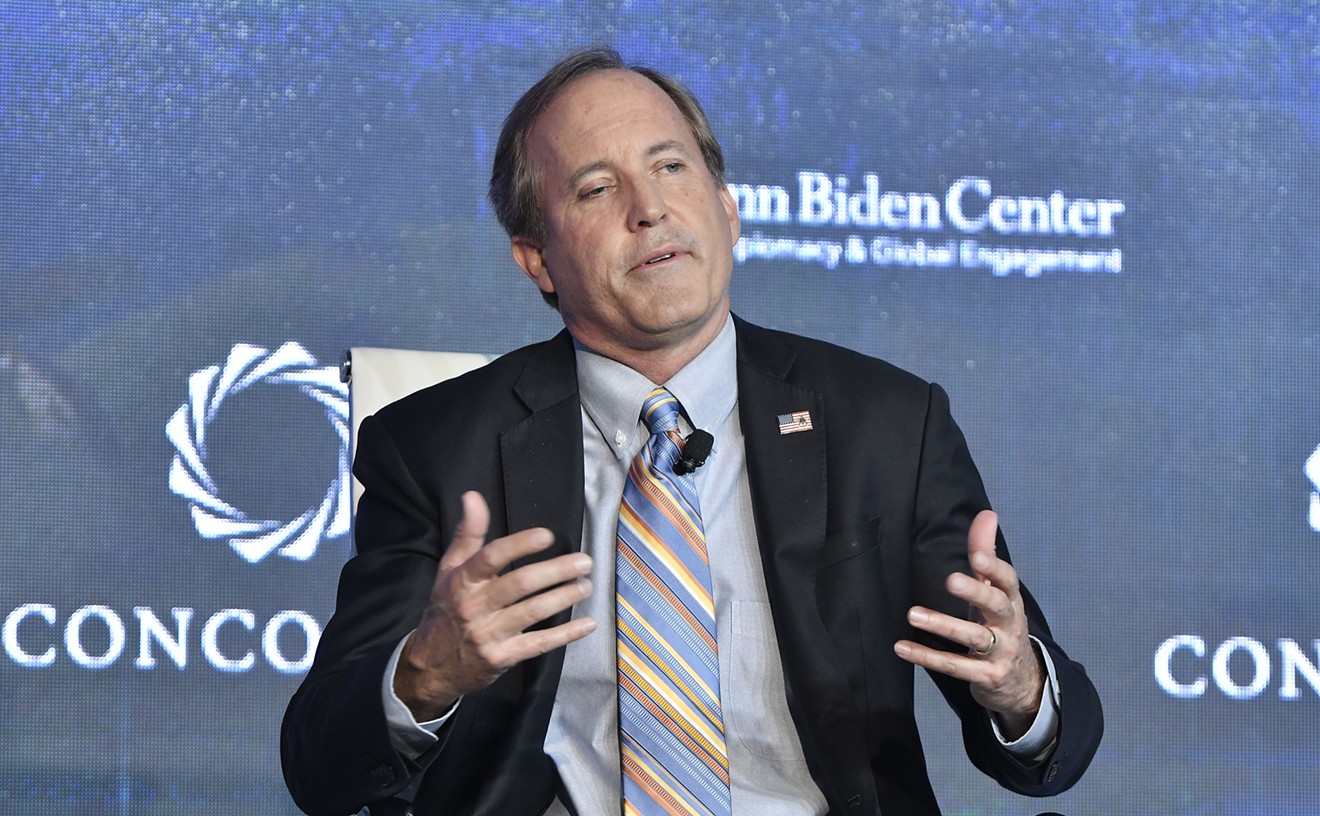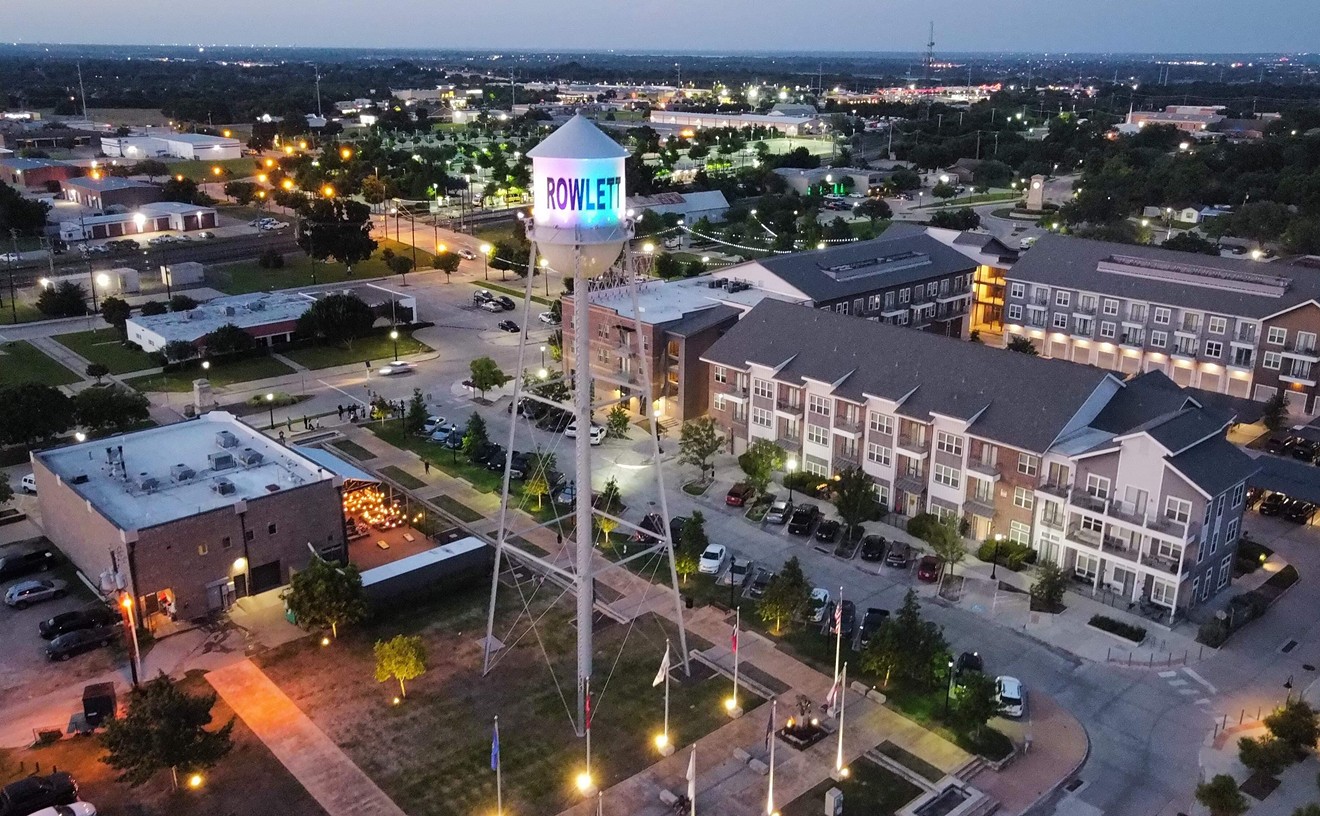The 911 operator tried to call him back. He wouldn’t answer. He’d shot himself after he hung up the phone. Police rushed over to the home off Royal Oaks Place and found Bain’s 82-year-old wife dead from an apparent gunshot wound. Bain, 79, was still alive but also suffering from a gunshot wound. He was taken into custody and transported to Medical City Denton where he remained in critical condition until Sunday night, when he finally succumbed to his gunshot wound.
Denton police spokesperson Shane Kizer told the Dallas Observer that the Bains had been suffering from health issues that continued to decline. “We’ve handled several quality of life cases [where someone committed suicide],” he says. “It’s not uncommon, but I can’t remember a case that involved a couple.”The Centers for Disease Control and Prevention reports that suicide rates increase with age.
tweet this
The Bains’ actions are not uncommon for seniors in Texas. The Centers for Disease Control and Prevention reports that suicide rates increase with age, and are extremely high for those 65 and older because they’re more likely to be suffering from physical illnesses, divorce or death of a spouse.
The American Association for Marriage and Family Therapy reports that double suicides involving spouses or parents occur more frequently among the aged, though they estimate that the numbers may be under-reported. The association also claims seniors have a higher rate of committing suicide successfully because they often use violent but effective methods, like firearms, hanging or drowning.
“A sizable portion of the population views youth suicide as a greater tragedy than late-life suicides,” the association reported on its website. “This way of thinking works against effective outreach to the elderly and efforts to understand and treat their conditions. The health care system is not meeting the needs of many elderly and discriminatory coverage and reimbursement policies for mental health care are significant barriers to treatment.”
Merily Keller, a suicide prevention co-coordinator for the Texas Suicide Prevention Council, says in Texas suicide rates have risen across the state from 10.5 percent to 12.1 percent per 100,000 people between 1999 and 2014. Texas seniors have the highest rate of suicide compared to middle-aged people nationally.
Keller says seniors commit suicide for a number of reasons, including financial burden, loss of friends, isolation and physical deterioration. She recommends anyone who may be contemplating suicide to contact the National Suicide Prevention Lifeline at 1-800-273-8255.
“Communities are made up of people, and we need people to care about the seniors in their lives and reach out to connect with them,” she says. “Connections to others helps prevent suicide since it helps to prevent isolation and loneliness and provides support for dealing with this loss.”
While there is widespread agreement that the elderly need more suicide support, there is a sharp division when terminally ill seniors or those in chronic pain want to end their lives. So-called “Death with Dignity” laws allow terminally ill adults to voluntarily request and receive a prescription medication to move up their date with death. Only five states — California, Colorado, Oregon, Vermont and Washington — have such statutes. In Montana, the terminally ill need a physician to help."A sizable portion of the population views youth suicide as a greater tragedy than late-life suicides. This way of thinking works against effective outreach to the elderly."
tweet this
Opposition to these laws ranges from disability rights groups who say it could pressure them to end their lives to those who worry that insurance companies would opt to pay for an end of life option rather than an expensive treatment. Others worry that it makes suicide an acceptable option for the elderly, working at cross-purposes with outreach and prevention.
The Observer spoke with a source from Death with Dignity National Center, a nonprofit organization that helps state legislators push forward these laws. He says terminally ill people who seek to end their lives are not seeking to commit suicide. They’re already dying and simply seeking to end their suffering on their own terms. “This isn’t suicide because it’s not ending an open-ended life span,” he says.
There is no Death with Dignity legislation in Austin this session, but the grassroots organization is trying to raise awareness to pave the way.
A former Harris County prosecutor, Cindy Merrill, is the co-founder of Texas Death with Dignity. She says she hears from Texans all the time who reach out on Facebook and say, “Please, help me, what can I do? I have this disease ...” But she says there isn’t much they can do in the Lone Star State.
Sometimes doctors in Texas, she says, will increase a terminally ill patient’s morphine dose “at greater and greater strengths until ‘Whoops!’ and they drop dead.” She says it’s also legal for Texans to starve themselves and refuse to drink. But most seniors in Texas choose ways that often go wrong or, even if they don’t, devastate families.
Merrill says she co-founded Texas Death with Dignity in 2013 with her friend Penny Schelfer, who was a breast cancer survivor. Shelfer was adamant about having a physician-assisted death with family and friends around her if the cancer returned. She died a year later from a heart issue that developed when she received chemotherapy.
Merrill didn’t find out about physician-assisted death until after her father’s death. Afflicted with multiple ailments that caused him extreme pain, he begged her to get him a gun to end his life. But she didn’t do it. She regrets not helping him to end his life with dignity, so she got involved in honor of his memory.
“I don’t care if you’re Republican, Democrat, Catholic, non-Catholic, you’re going to want to find a way to end [your life if you’re suffering],” she says. “Now, I would put him in a car and move him to one of the states where it’s legal. No family should have to bear a suicide.”
Denton police couldn’t confirm if the Bains were terminally ill. Sources who knew the family say Ruth Bain had suffered several strokes. Investigators learned from sources who knew the couple that they were dealing with declining health issues. They also found a folder inside the Bains’ house with information explaining how to handle their affairs.
Condell Garden, who worked with Ruth Bain at Interfaith Ministries in Denton for about a decade, wasn’t sure why Joe Bain would murder his wife and commit suicide. She’d known them to be a loving couple who cared about family and the community, but she also understands the predicament that older people sometimes find themselves facing when their health begins to decline.
“Older people are often reluctant to ask for help,” she says.












